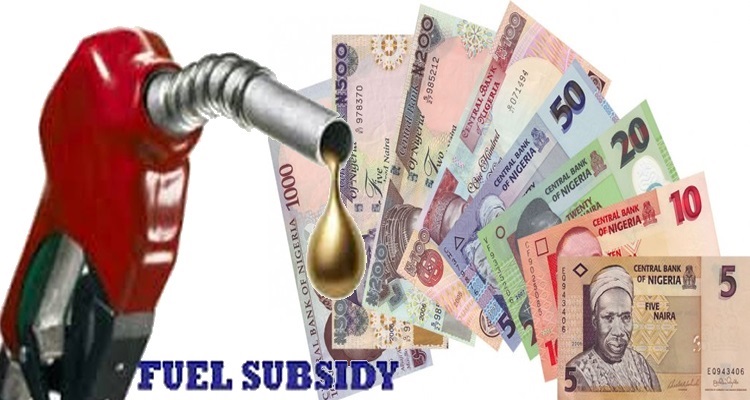Emir Muhammad Sanusi II has advised the Buhari administration to end fuel and electricity subsidies. His argument put forth at the treasury workshop organised by the office of the Account-General of the Federation in Kano last week should have jolted the government as well as the cardinals and the apostles of fuel subsidy. Sanusi has a penchant for speaking truth to power in a strong language. I always welcome it.
This was not the first time the former governor of the Central Bank of Nigeria would make a case for subsidy removal. His position has been consistently supported by the World Bank and the IMF, the mangers of the global economy. If the emir receives applause for his stand, it would not be from either the federal government or the managers of our national economy. I offer him my own applause loudly.
The fuel subsidy regime is a mess. Everyone knows it constitutes one of the biggest leakages in the management of the nation’s economy. It is corrupt; it is fraudulent. It exists for the privileged few at the expense of the many under-privileged.
It is sustained because it is not about economic correctness; it is about political correctness. No federal administration in the country wants to make it history. Instead, they skirt around it with policies they could not sustain and which, in the end, failed to help those beloved creatures for whom governments and rulers exist – the people. Pleasing the people is believed to be the primary business of government. No government ever fails to fall for flattery. The problem is that the hunt for the people’s endorsement of government, aka popularity, comes at a huge price to the nation and the people too. Everyone loses and none is actually the wiser.
In making the case once more for the removal of subsidies, the emir, I am sure, could not expect anything to change. When you are dealing with an entrenched system, you do not count change in minutes. You count it in months or even years. Sanusi told his audience that if the federal government refuses to listen to the sane voices of economic reason and continues with the controversial subsidy regime, we would be sauntering with our eyes open right to the edge of the economic cliff. Not a nice place to be for a country grappling with unprecedented poverty, the worst so far in its history.
The emir told the workshop that in 2011, when he was governor of the Central Bank, Nigeria earned $16 from the sales of petroleum. A tidy sum which, had it been committed to job creation, not a few of our young graduates would have been taken off the streets into gainful employment by now. But what did the federal government do with the money? According to Sanusi: “We spent $8 billion importing petroleum and spent another $8.2 billion subsidising the product. And I asked, ‘is this sustainable?’”
I am sure he received no answer to that question but the answer surely crept up on the nation, leading the royal father to this frightening conclusion: “The country is bankrupt. What happens is that the federal government do pay petroleum subsidy, pays electricity tariff subsidy, and if there is a rise in interest rates, the federal government pays.” The real problem as the emir sees it and I agree 110 per cent with him, is that the country is forced “to sacrifice education, health and infrastructure for us to have cheap petroleum.”
Our progress is arrested obviously by the choices we make as a nation. I would have thought we would have no problems choosing between squandering our riches on petroleum and electricity subsidies and spending the same amount of money to prosecute our education, health and infrastructural projects. If you still wonder why our country remains potentially great, touch wood. The subsidies, it bears repeating, benefit only a few and their minions in the corridors of power. The subsidies have not made life easier for the middle class, the poor and the extremely poor.
Still, we find the tattered rationale for fuel subsidy both attractive and reasonable and are prepared to sustain it until perhaps the fuel-bearing hydro-carbon refuses to oblige us and we lose our membership of OPEC. There are those who argue that because Nigeria is a leading crude oil-producing nation, it is right and fair and sensible to let the people enjoy the oil wealth by paying less for fuel and that to make Nigerians pay the same price for petrol like the citizens of non-oil producing countries would be unfair, unfeeling and irresponsible on the part of the Nigerian government. I wonder if this argument still impresses anyone. It served its purpose then; it flies against the realities in our country today.
We are all aware that neither the Nigerian government nor labour wants to hear anything about ending the subsidies. It does not matter to them that the poor people in whose interest this fraud is maintained, do not benefit from it in any way. They still have to pay higher transport fares; they still pay more for local foodstuff; they still cannot have electricity and must rely on candles; they still pay more to be attended to by medical personnel in government and private hospitals; they still pay more for the education of their children; they still have no potable water; and they still die on bad roads.
Not long ago, the managing director of IMF, Mrs Christine Lagarde, advised the federal government for the nth time to remove fuel subsidy and spend what it saves from it on health, education and infrastructure. Why does the Buhari administration continue to dance around this problem? Even with the subsidy fuel is not cheap. So, why maintain the charade in the fictional interest of the people? Functional and affordable education; hospitals that make people healthy at a cost they can afford; roads that are not death traps; a public transportation system that charge fares within the reach of the majority of people; local foodstuff priced within their reach; constant electricity supply they can put to use running their small businesses; improved maternity health care delivery system so that the next generation of Nigerians are born health and live healthy, make more sense to the people than cheap fuel that is not even cheap.
When the late General Sani Abacha increased the prices of petroleum products, he used one and half per cent saved from the new price to set up the Petroleum Trust Fund, PTF, perhaps the most successful interventionist agency in our country so far. It was headed by Buhari. I am sure the president knows the difference the fund made to the lives of the people.
The president would risk a backlash if he ends fuel subsidy because it would be unpopular. He can derive satisfaction from this: the will and the courage to change a nation and the way it does its business, come with a price. A leader must be prepared to pay it. Governance is about doing the right thing for the right reasons. Ending the fuel subsidy now is the right thing to do for the right reasons, not least of which is to pull us back from the brink.
If Buhari can’t, who then can?

 Join Daily Trust WhatsApp Community For Quick Access To News and Happenings Around You.
Join Daily Trust WhatsApp Community For Quick Access To News and Happenings Around You.


